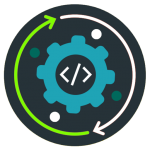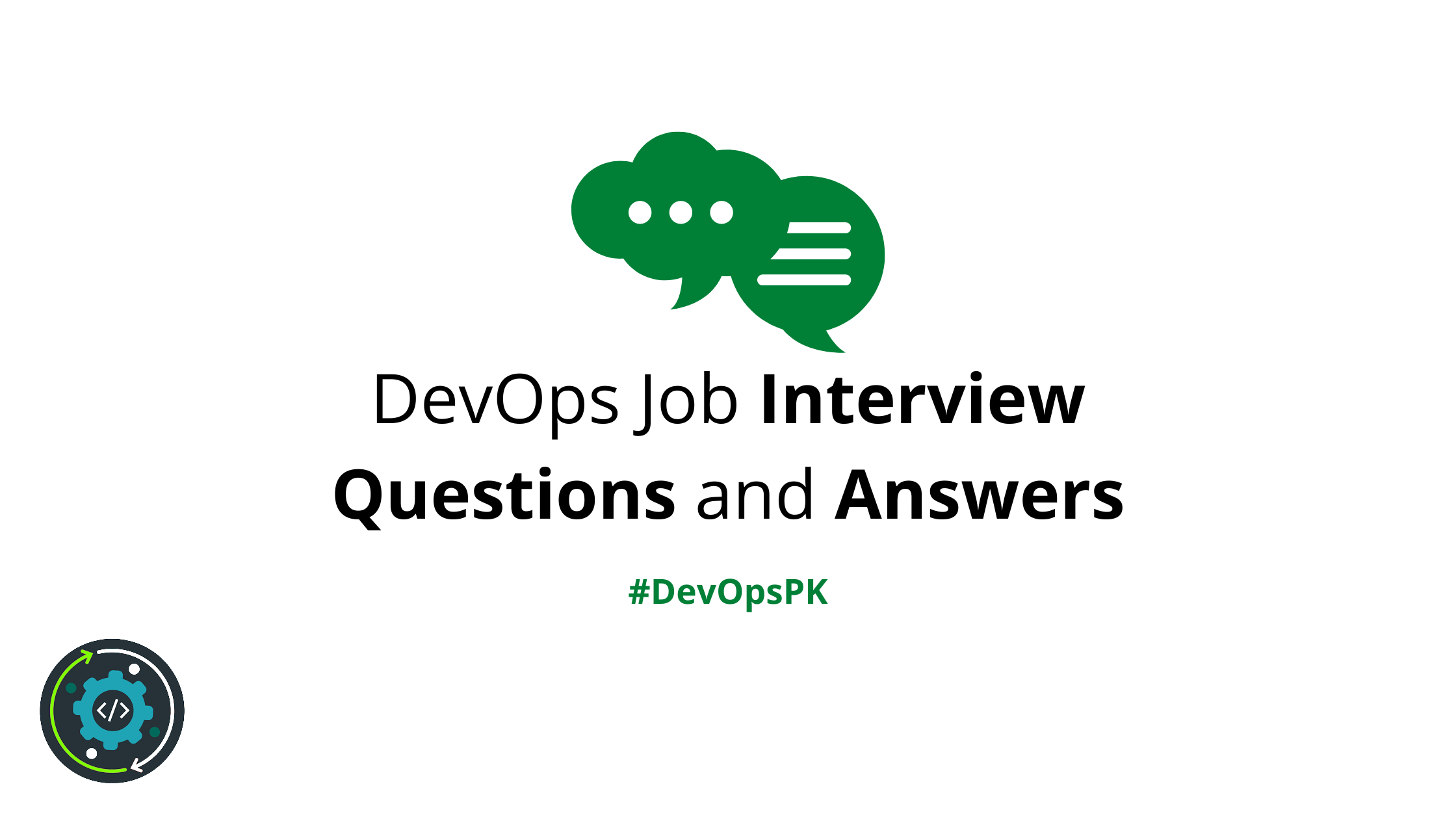DevOps is one of the trending topics nowadays. It is a hybrid platform for the development and operations team, where they collaborate to deliver a product faster and efficiently. In the past few years, there has been a notable upsurge in job listings for DevOps experts.
Tech giants like Google, Facebook, and Amazon, frequently have introduced multiple vacancies for DevOps job roles. However, the job market is very much saturated, and the questions asked in a DevOps interview involve many diverse aspects and areas.
This blog post is intended to answer the most asked DevOps interview questions to help you make your debut in the DevOps industry.
Let discuss some general and most anticipated DevOps interview questions and answers.
Table of Contents
Most Anticipated DevOps Interview Questions
1. What do you know about DevOps?
Keep your answer as straightforward as you can. Start by explaining the skyrocketing value of DevOps in the IT industry. Discuss how such an approach focuses on the hybridization of the efforts from both development and operations teams to boost the quality and rate of production of software products, with a minimal failure rate. Discuss how DevOps is a value-added methodology, where development and operations teams collaborate throughout the development lifecycle, right from the planning phase to the final delivery and deployment
2. How is DevOps different from Agile Methodology?
DevOps is an approach that enables the development and the operations team to work in close collaboration with a high level of synchronization, which interns ensure continuous development, testing, integration, deployment, and monitoring of the product throughout the project lifecycle.
Agile is a software development approach that focuses on the iterative, incremental, small, and quick launch of software products parallel with customer feedback. By doing so, It helps in fulfilling the gaps and resolving conflicts between the customer and developers.
In contrast, DevOps fills the voids and resolves conflicts between the Developers and IT Operations.
3. What are some of the most renowned DevOps tools?
The most renowned DevOps tools or platforms include:
- Selenium
- Puppet
- Chef
- GitLab
- Jenkins
- Kubernetes
- Ansible
- Docker
4. Highlight the key phases in DevOps cycle?
The different phases of the DevOps lifecycle are as under:
- Planning – At the very start, there should be a plan or a roadmap for the type of app that needs to be created from scratch. Outline a fundamental structure of the development process is always a good decision.
- Coding – The application is all set to be coded following the end-user requirements.
- Building – Build the application by integrating segmented codes developed in the previous steps.
- Testing – This is the most vital and primary phase of the DevOps cycle. Test the application and revise the previous steps, if necessary.
- Integration – Multiple codes and application segments from different programmers are integrated to shape a unified application.
- Deployment – Final and integrated code is then deployed into a cloud scale for further processing. It is ensured that any updates or changes do not negatively impact the overall functioning of the application.
- Operate – Different Operations are performed on the code if necessary.
- Monitor – Application performance is monitored through different perspectives and evaluated accordingly. Changes and updates are made before final delivery to the end-user
5. Highlight some of the primary benefits of DevOps.
The Primary and fundamental benefits of DevOps are as follows:
Technical benefits
- Continuous delivery of software product or service
- Fewer complexities and difficulties in managing problems
- Early detection resulting from the quick and timely correction of defects
Business benefits
- Quick delivery of features
- Stable operating conditions that provide rich control and accuracy
- Improved communication and collaboration between the developers and operations team
6. What is your strategy regarding a project that needs to implement DevOps?
The following standard procedures can be applied to integrate the DevOps cycle in a specific project:
Stage 1
An evaluation of the existing process and implementation for about two to three weeks to outline key areas that need improvement so that the team can design a road map and strategy for the implementation.
Stage 2
Set up a proof of concept – POC. Upon acceptance and approval, the teams can start working on the actual implementation of the project plan or roadmap.
Stage 3
Until now, a project is now ready to adopt DevOps methodology. Other crucial phases of the DevOps cycle include control/integration/testing/deployment/delivery and monitoring the lead.
7. Give key differences between continuous delivery and continuous deployment?
|
Continuous Delivery |
Continuous Deployment |
|
Ensures code can be safely implemented for production |
Every update or change that passes the automated
filters will be implemented for production automatically |
|
Ensures business apps and services meet the expectations |
It makes software development and the launch process quicker and more robust |
| Delivers every change to a production environment through attentive and highly informed automated testing |
There is no explicit approval from a developer requires |
8. What is the impact of configuration management in DevOps?
- Allows management to make changes on multiple systems and channels
- Sets SOPs for resource configurations, which in turn, manage the IT framework.
- It helps in the administration and management of different servers and systems while ensuring the integrity of the entire framework.
9. Discuss the role of continuous monitoring in maintaining the overall architecture of the system?
Continuous monitoring is a method of DevOps that is intended to detect, outline, and report any errors or threats in the entire framework of the system or application.
- Ensures that all services, applications, and resources are performing without any issue on the servers properly.
- Examine the status of servers and acknowledge if applications are working correctly or not.
- Allows continuous audit
- Ensures transaction inspection.
10. What is the role of AWS in DevOps?
AWS plays a very important role in the DevOps framework such as:
- Flexible services – Provides ready-to-use and highly scalable services without the need to install or set up the software.
- Built for scale – You can manage a single instance that is highly scalable to thousands of instances.
- Automation – AWS allows you to streamline iterative tasks and processes, allowing you to focus on core areas of the project
- Secure – AWS Identity and Access Management – IAM allows you to customize your permissions and policies.
- Variety of Extensions – AWS offers integration with different plugins and extensions.


One Comment
What is the Career Objective for DevOps Engineer?
[…] Also Read: DevOps Job Interview Questions and Answers […]